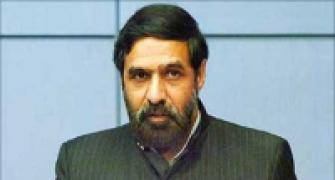Volatility in local share markets have hit India Inc's equity fund-raising plans, with the total deal value this year set to fall below the level seen in 2008. This has squeezed the fee income of investment banks in the country and triggered job losses in many of these firms.
This has squeezed the fee income of investment banks in the country and triggered job losses in many of these firms.
"This year has been challenging for the primary market. Around $9 billion has been raised so far, and we don't expect much in the last (October-December) quarter," said Sanjay Sharma, head (equity capital markets), Deutsche Bank Group, India.
In the first eight months this calendar year, Indian companies raised $9.2 billion, compared with $29.9 billion raised in 2010, according to Dealogic data. In 2008, Indian companies raised $13.8 billion through equity issuances.
The fee earned by investment banks so far this year is estimated at around euro 52 million, compared with euro 238 million last year.
In 2008, investment banks earned euro 98 million by managing equity issuances of domestic firms.
The shrinking fee pool has also taken its toll on headcounts, with many banks shrinking their investment banking teams in the last few weeks.
"This would be the most difficult year for equity capital markets in a long time. With PE (price earnings) multiples contracting, promoters are also weary of selling equity. Foreign institutional investors have backed out from emerging markets, including India," said Tarun Kataria, chief executive, Religare Capital Markets, India.
Bombay Stock Exchange's benchmark index, Sensex, has plunged 17.46
While investment banks claimed their bill rates were not affected despite a slowdown in deal flows, they plan to maximise their share in the declining fee pool by offering value-added services.
"For investment banks, the fees, as a percentage of amount raised, has not really come down over the last few years, and we see the differentiation between banks is more in terms of the quality of service offered," Sharma said.
Deutsche Bank has the largest share of fee income from equity issuances in India so far this year. It earned euro 3.7 million, managing three deals between January and August.
"Market conditions this year have been pretty tough. The ability of Indian companies to raise equity capital in this environment has been limited. The fund flow from foreign institutional investors has remained muted and hence, primary issuances would continue to struggle," said a senior official in charge of equity capital markets of a British bank in India.
Industry players expect companies in financial services and infrastructure sectors to lead the recovery, once the market volatility subsides.
"Today, rate-sensitive sectors like infrastructure, real estate and banking are not doing well in the secondary market and hence, these would find it difficult to raise money.
However, once the market improves, these sectors would pick up first. In terms of products, I expect QIPs (qualified institutional placement) and follow-on offers to take the lead, before IPOs (initial public offers) pick up," Sharma said.










